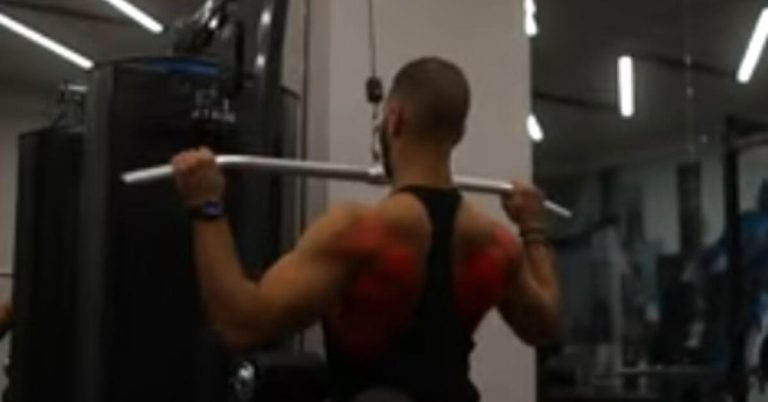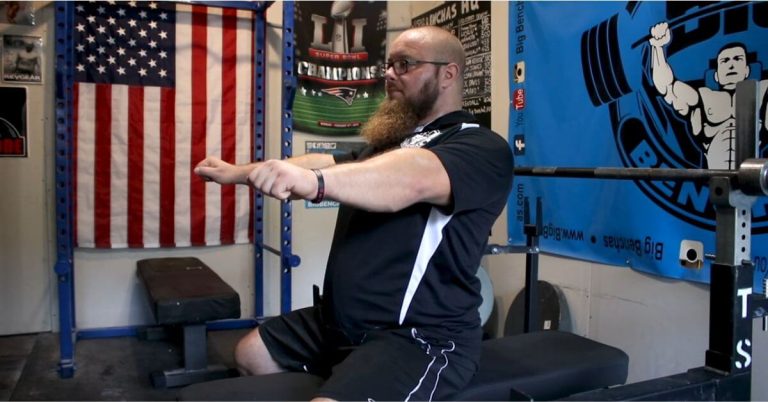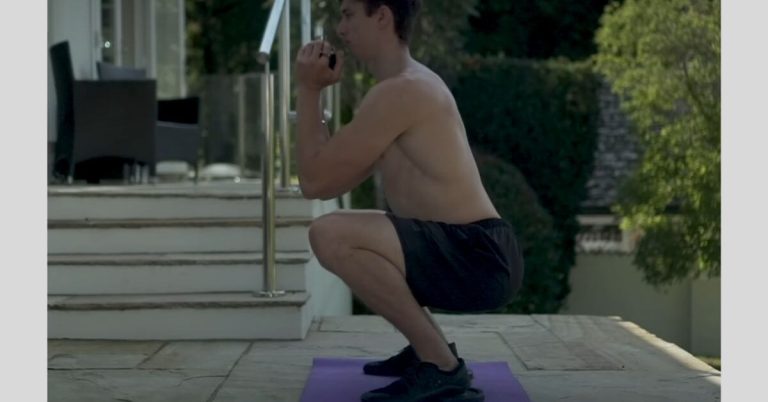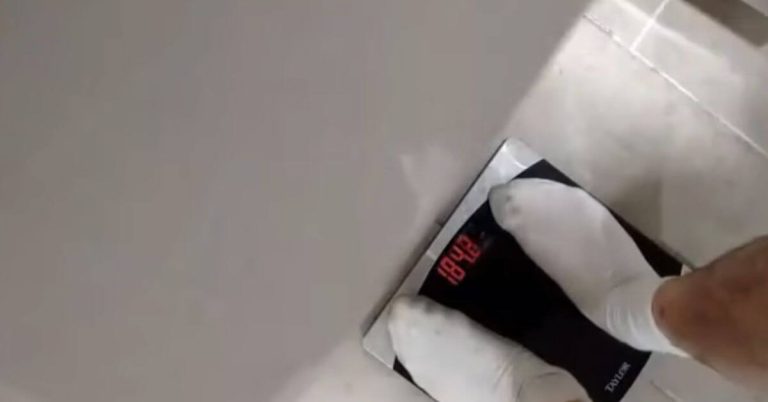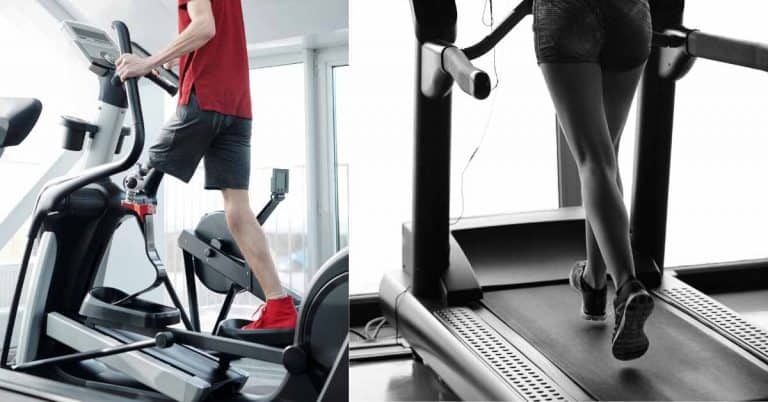Why Do My Shoulders Pop When I Do Lateral Raises? Find the Solution Here!
Last Updated on October 20, 2023 by Justin Harris
Why Do My Shoulders Pop When I Do Lateral Raises: When performing lateral raises, your shoulders may pop due to the tendons flicking as they move over the bone. These tendons, which connect muscles to their supporting bone, can cause a popping noise.
However, if there is pain involved, it may be a cause for concern and should be evaluated further. Shoulder popping during lateral raises can be a common occurrence that may raise some questions. While it may seem alarming, understanding the reasons behind this popping sensation is important to ensure proper care and prevent any potential injuries.
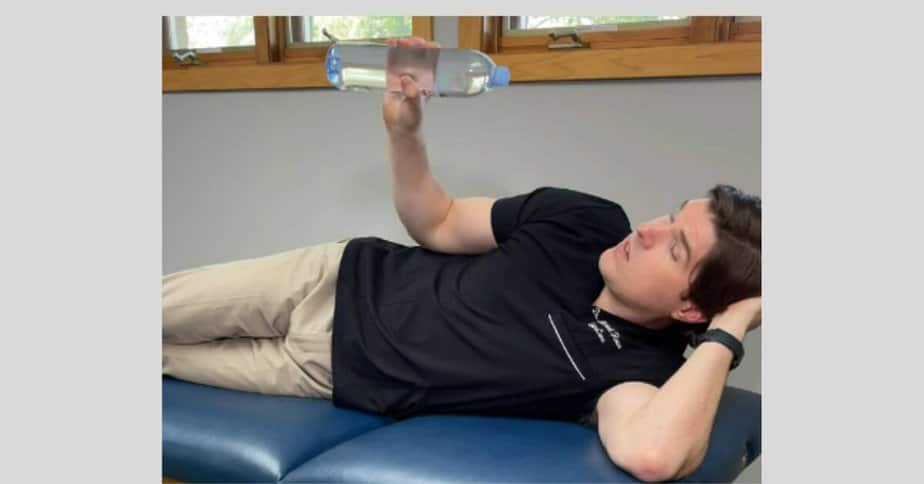
We will explore why shoulders pop during lateral raises and discuss possible causes, as well as provide tips on how to prevent this issue. By gaining insight into this phenomenon, you can optimize your shoulder workouts and maintain a healthy and pain-free exercise routine. So, let’s dive in and explore the reasons behind your shoulders popping during lateral raises.
Understanding The Shoulder Popping Phenomenon
Shoulder popping during lateral raises can be a common occurrence and understanding the phenomenon is important for addressing the issue. The popping sound often happens due to the movement of muscle tendons over the bone, causing a flicking motion and creating the noise.
These tendons, which connect muscles to their supporting bone, can become overused or injured, especially since they are the main movers of the shoulders. While shoulder popping may be normal in some cases, it can also be a cause for concern if there is accompanying pain.
The pain could be a result of poor posture, uncomfortable conditions, or more severe health conditions and injuries. It is essential to listen to your body and seek professional advice if you experience discomfort or ongoing issues with shoulder popping during lateral raises.
Common Reasons For Shoulder Popping During Lateral Raises
Common Reasons for Shoulder Popping during Lateral Raises:
One common reason for shoulder popping during lateral raises is muscle overuse and injury. The muscles involved in this movement, such as the deltoids and rotator cuff, can become overworked and fatigued, leading to popping noises. It is important to listen to your body and avoid overtraining these muscles.
Another cause of shoulder popping is the movement of tendons. Tendons can flick as they move over the bones in the shoulder joint, creating a popping noise. Tendons are the structures that connect muscles to bones and are involved in various movements, including lateral raises.
In some cases, shoulder popping during lateral raises can be a sign of underlying health conditions or injuries. These can range from simple issues like poor posture or discomfort to more serious conditions requiring medical attention. If you experience pain or persistent popping, it is advisable to consult a healthcare professional for a proper diagnosis and treatment.
Effects And Concerns Of Shoulder Popping During Lateral Raises
Shoulder popping during lateral raises can have various effects on exercise performance. For some, it may be a normal occurrence without any discomfort or pain. However, for others, it can cause discomfort or even sharp pain. It is important to address the issue to prevent further damage.
Shoulder popping occurs when muscle tendons flick as they move over the bone, causing a popping noise. These muscles are the prime movers of the shoulder and are prone to overuse and injury. While in some cases, shoulder popping may be benign, if there is pain involved, it is a cause for concern.
It is recommended to seek professional advice if the popping is accompanied by pain or hinders exercise performance. By addressing the issue, you can prevent potential injuries and discomfort while performing lateral raises.
Tips To Prevent Shoulder Popping During Lateral Raises
When performing lateral raises, it is not uncommon to experience shoulder popping. The popping noise can occur due to several factors, including overuse and injury to the muscles and tendons in the shoulder.
To prevent shoulder popping during lateral raises, it is important to follow proper warm-up exercises for the shoulder muscles. These exercises can help increase blood flow to the muscles and improve flexibility. Additionally, stretching techniques should be implemented to avoid muscle tension.
Proper form and posture during lateral raises are also crucial to reduce the risk of shoulder popping. It is essential to maintain a straight back, engage the core muscles, and lift the dumbbells with controlled movements. By incorporating these tips into your routine, you can minimize shoulder popping and enhance the effectiveness of your lateral raises.
Strengthening And Stabilizing Shoulder Muscles To Reduce Popping
To reduce popping in your shoulders during lateral raises, it’s important to strengthen and stabilize the shoulder muscles. When the muscles are weak or imbalanced, the tendons can flick over the bone, causing the popping noise. Focus on exercises that target the shoulder muscles and aim to improve their strength and stability.
Effective exercises to strengthen shoulder muscles
Techniques to stabilize the shoulder joint during lateral raises:
- Start with lighter weights and gradually increase as you build strength.
- Focus on maintaining proper form and a controlled movement throughout the exercise.
- Engage the core and keep the scapula retracted and depressed to stabilize the shoulder joint.
- Use resistance bands or cables to add variety and challenge to your shoulder exercises.
The role of shoulder stability in preventing popping:
- Strengthening the rotator cuff muscles through exercises like external rotations and internal rotations can improve shoulder stability.
- Incorporate exercises that target the muscles surrounding the shoulder joint, such as upright rows and shoulder presses.Perform exercises that focus on scapular stability and mobility, like scapular retractions and wall slides.
- Regularly stretching the chest, upper back, and shoulder muscles can help maintain flexibility and prevent muscle imbalances.
Regularly performing these exercises and techniques can help strengthen and stabilize your shoulder muscles, reducing the popping sensation during lateral raises. Remember to listen to your body and adjust the intensity and weight as needed.
If you experience any pain or discomfort, it’s important to consult with a healthcare professional for proper diagnosis and treatment.
Seeking Professional Help For Persistent Shoulder Popping
The popping sound that you experience in your shoulders during lateral raises can be concerning. While it is typically harmless, persistent shoulder popping can indicate an underlying issue that may require professional help.
It is important to know when to consult a healthcare professional for your shoulder popping. If the popping is accompanied by pain, limited range of motion, or swelling, it is recommended to seek medical attention.
Once you have consulted a healthcare professional, they may recommend various treatments and therapies for your shoulder popping. These can include physical therapy, exercises to improve shoulder stability, and anti-inflammatory medications. In some cases, surgical intervention may be necessary if conservative methods do not alleviate the symptoms.
Timely intervention is crucial for long-term shoulder health. Ignoring persistent shoulder popping can lead to further damage and complications. It is best to address the issue early on to prevent any potential long-term consequences. Remember to consult a healthcare professional for an accurate diagnosis and personalized treatment plan.
Conclusion
Shoulder popping during lateral raises can be caused by overuse and injury to the muscles and tendons in the shoulder. The flicking motion of the tendons over the bone can result in a popping noise. While some cases of shoulder popping may be benign, if there is pain involved, it should be a cause for concern.
It is important to address the issue by maintaining proper posture and seeking professional help if needed. By taking care of your shoulders, you can prevent further discomfort and injury in the long run.
Read Also,

